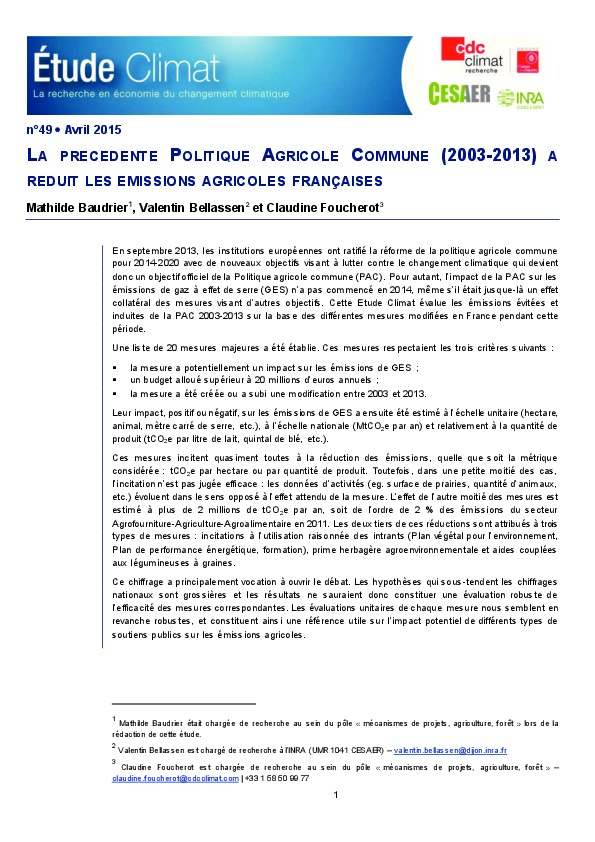The previous Common Agricultural Policy (2003-2013) reduced french agricultural emissions
In September 2013, European institutions ratified the reform of the Common Agricultural Policy for 2014-2020 with new targets for combating climate change, making these an official goal for the Common Agricultural Policy (CAP). However the CAP’s impact on greenhouse gas (GHG) emissions did not begin in 2014, even if it was previously ancillary to measures focusing on other targets. This Climate Report assesses emissions avoided and induced by the 2003-2013 CAP based on CAP measures modified in France over the period.
A list of 20 major measures was drawn up. These met the following three criteria:
- The measure potentially has an impact on GHG emissions;
- The annual budget allocated to the measure is more than €20 million a year;
- The measure was created or modified between 2003 and 2013
Their positive or negative impact on GHG emissions was then estimated at a unitary level (per hectare, animal, square metre of greenhouse, etc.), on a national scale (MtCO2e per year) and relative to the quantity produced (tCO2e per litre of milk, quintal of wheat, etc.).
Almost all these measures encourage emissions reduction, whatever the metric considered: tCO2e per hectare or per quantity of product. In just under half of cases, however, the incentive is not considered to be effective, with the data (e.g. surface area of grasslands, quantity of animals, etc.) moving in the opposite direction from the expected effects of the measure. The effects from the other half of measures is estimated at more than 2 million tCO2e per year, or around 2% of emissions from the agri-supply, agriculture and agri-food (AAA) sectors in 2011. Two-thirds of these reductions can be attributed to three types of measures: incentives for sustainable use of inputs (green environment plan, energy performance plan, training, etc.), agri-environmental grassland premium and coupled support for grain legumes.
The main purpose of these calculations is to spark a debate. The assumptions underlying national figures are imprecise and therefore the results should not be treated as a robust assessment of the efficiency of the corresponding measures. However, we believe that the unitary assessments of each measure are more robust and can therefore be used as a valuable reference for the impact of various types of public subsidies on agricultural emissions.
